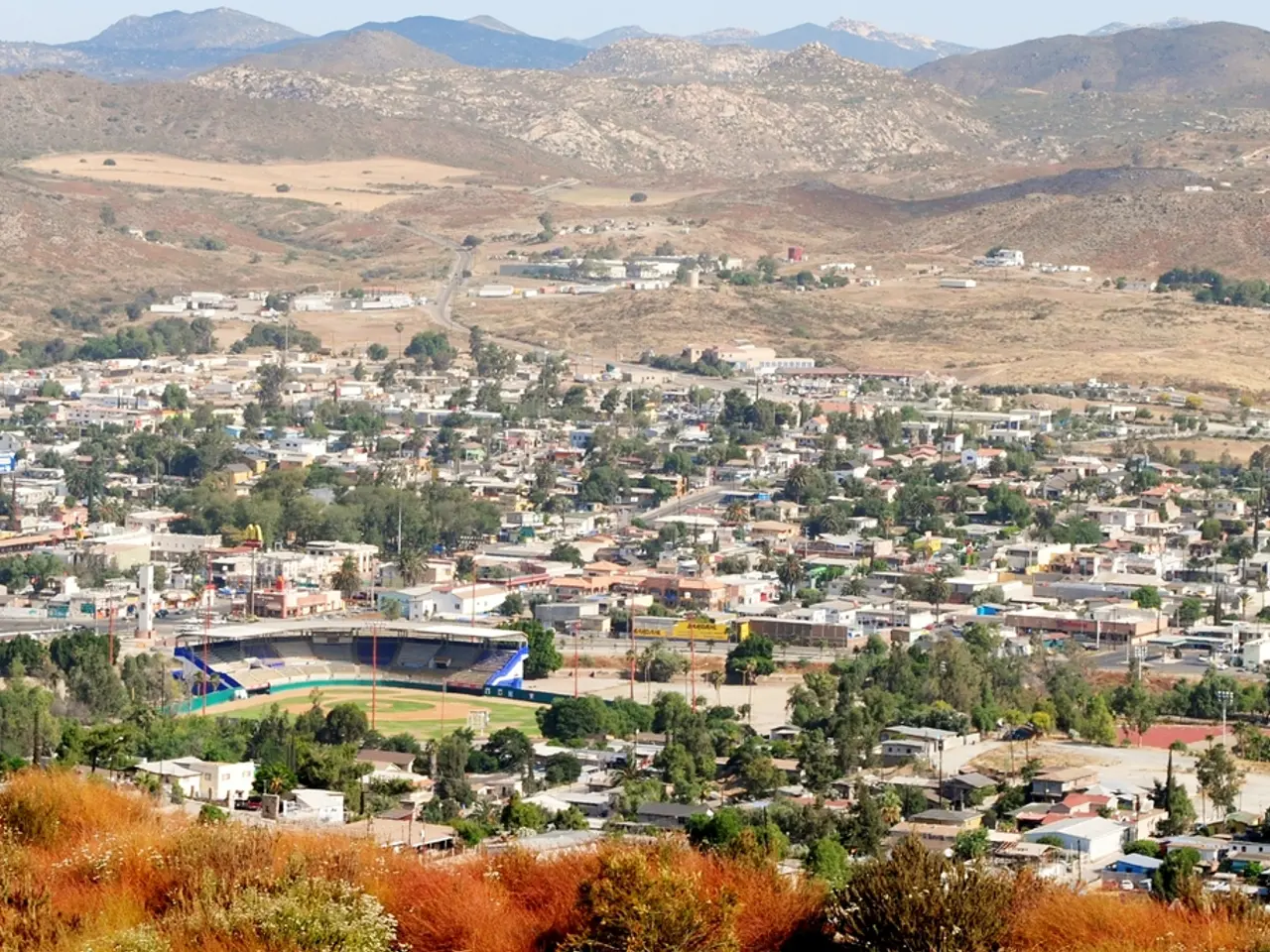Republicans aggressively push Trump's extensive tax reduction and government spending legislation through the Congress
The "One Big Beautiful Bill," a controversial tax-cut package, has recently been passed by the U.S. Congress, marking a significant development in the nation's fiscal landscape. The bill, which is expected to be signed into law by President Trump, includes various provisions that will impact the economy, healthcare, and income inequality.
## Key Provisions
The bill offers about $4.5 trillion in tax cuts, making existing tax rates and brackets permanent. It also introduces temporary tax deductions for tips, overtime, and auto loans, along with a $6,000 deduction for older adults earning no more than $75,000 annually.
However, the bill also reduces federal funding for healthcare programs, including cuts to Medicaid and the Affordable Care Act (ACA) marketplace. These cuts are expected to increase the number of uninsured individuals and could trigger job losses in states. The bill is projected to increase the federal deficit by nearly $3.3 trillion over the next decade, with estimates suggesting a total deficit increase of almost $3.8 trillion when considering higher interest costs.
## Tax Breaks by Income Group
High-income households are expected to see an average increase of $12,000 in resources due to the tax cuts. Provisions like extending the Alternative Minimum Tax (AMT) repeal for taxpayers with income below $1 million and expanding the standard deduction hike are beneficial for higher-income taxpayers.
On the other hand, low-income households, particularly those reliant on safety-net programs like Medicaid and SNAP, will see reduced resources. The cuts to these programs are expected to have a significant negative impact on this demographic. Seniors are eligible for a new $4,000 deduction, which phases out at higher income levels, designed to benefit seniors with lower incomes.
## Implications and Controversies
The bill is expected to be a significant issue in the 2026 midterm elections, with Democrats hoping to recapture at least one chamber of Congress. The increased debt load created by the bill would transfer money from younger to older generations, according to analysts.
Nonpartisan analysts suggest that the wealthiest Americans would see the biggest benefits from the bill, while lower-income people could effectively see their incomes drop due to the safety-net cuts outweighing their tax cuts. Some foreign investors find U.S. Treasury bonds less attractive due to the bill.
The spending cuts in the bill mainly target Medicaid, a health program for 71 million low-income Americans. The bill also cuts health and food safety net programs. Additionally, the bill raises the U.S. debt ceiling by $5 trillion, averting a short-term default.
The tax-cut bill zeroes out dozens of green energy incentives, potentially impacting the nation's efforts towards sustainable energy. The bill also funds President Donald Trump's immigration crackdown, a contentious issue that has sparked debate and protests.
Ratings firm Moody's downgraded U.S. debt in May due to the mounting debt. The tax-cut bill introduces changes to Medicaid that could leave nearly 12 million people uninsured, including tightening enrollment standards, instituting a work requirement, and clamping down on a funding mechanism used by states.
In conclusion, the "One Big Beautiful Bill" presents a complex picture of tax cuts, spending reductions, and healthcare impacts. The bill's implications extend beyond the immediate financial landscape, touching upon issues of income inequality, healthcare access, and the nation's long-term fiscal health.
- The controversial tax-cut package, known as the "One Big Beautiful Bill," is expected to have a significant impact on various sectors, including business and finance, due to its provisions that offer tax deductions for tips, overtime, auto loans, and older adults earning less than $75,000 annually.
- However, the bill's impact on the health sector is equally profound, with cuts to federal funding for healthcare programs such as Medicaid and the Affordable Care Act marketplace expected to increase the number of uninsured individuals and potentially trigger job losses in states.
- In the realm of policy-and-legislation and politics, the bill is projected to be a major issue in the 2026 midterm elections, with Democrats aiming to recapture at least one chamber of Congress, and analysts suggesting that the bill's focus on tax breaks for high-income households could strain relations with foreign investors and raise concerns about income inequality and long-term fiscal health.




